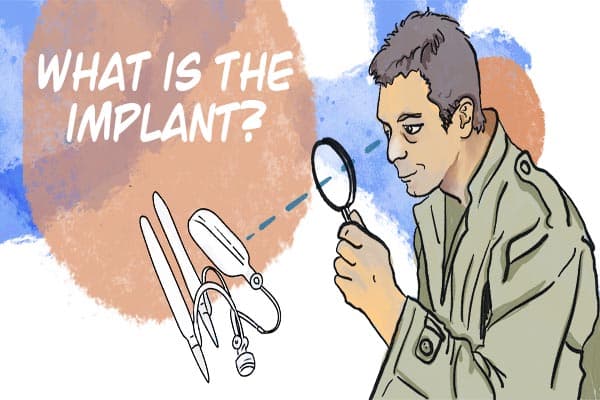The treatment of prostate cancer and erectile dysfunction
To date, 13.5% of men worldwide are affected by prostate cancer.1 The prostate gland is part of the male reproductive system and produces one of the components of sperm, it contributes, with other factors, to its expulsion from the penis. Its treatment, whether surgical or not, can lead to changes in sexual function and more specifically, erectile function.
Surgery or even treatment for prostate cancer can have an impact on your sexual desire and your sex life in general. Especially if you have previously suffered from erectile dysfunction. However, it is important to remain positive and to use introspection: it is often possible to correct or at least improve your sexual function after treatment.
After prostate cancer surgery: The impact on erectile function
Various medical solutions for prostate cancer can be the cause of some erectile problems:
-
- Radical prostatectomy is a surgical procedure that inflicts damage to the nerves resulting in local changes that causes sexual dysfunction immediately after the operation. However, no need to worry: the nerves involved in erection will likely be restored between 12 and 24 months post operatively.
- Hormone therapy is a frequent treatment prescribed to reduce the size of tumours. Unfortunately, it is often responsible for a decrease in libido and erectile function in general. After treatment, your libido may reappear. Talk to your partner about solutions to rekindle your desire.
- Radiation therapy can destroy cancer cells. Radiation therapy induces morphological arterial and nervous degeneration and reduces blood flow to the penis.
Prostate cancer and erectile dysfunction: don’t give in to frustration!
Consequences such as erectile dysfunction or decreased libido can lead to a loss of self-esteem, confidence and finally depression. This may be a difficult stage, especially as it stems from a disease. However, don’t give up: it is important to continue to be sexually active. Your penile rehabilitation will be better and more effective: you will avoid any fibrosis due to a lack of blood or oxygen and you will increase your chances of achieving a natural erection.
Close contact with your partner is definitely recommended at this challenging time in your life. An open and honest discussion will enable you to explore other ways to grow sexually together. Above all, your partner’s support can help you to overcome any feelings of isolation. There are many ways to satisfy yourself, your partner and your virile body image. Find out more in our article on good communication in the couple. In addition, be sure to consult a sexologist, who will help you explore the field of possibilities and prove to you that it is possible to have pleasure when you are suffering from erectile problems!
The top 3 tips for a fulfilling sex life
1- As you may know, it is better to stay sexually active after prostate cancer surgery or treatment. Beneficial advice for both your physical and emotional health!
2- Your life should be dictated by the unforeseen and not by your cancer diagnosis or treatment! You can rebuild your sex life with spontaneity. Pay no attention to performance and don’t force yourself to have sexual relations: instead focus on gradually rediscovering desire and exploring new options with your partner. In addition to the accumulated complicity, you will be more relaxed and enjoy improved self-esteem.
3- If you experience any discomfort or pain during intercourse, consult your doctor promptly
When you make an appointment to discuss ED with your doctor, he’ll go over your options and help you decide what’s best for your unique situation. He might suggest making lifestyle changes, trying drug therapy, or getting a penile implant.
1: CA: A Cancer Journal for Clinicians 2018




